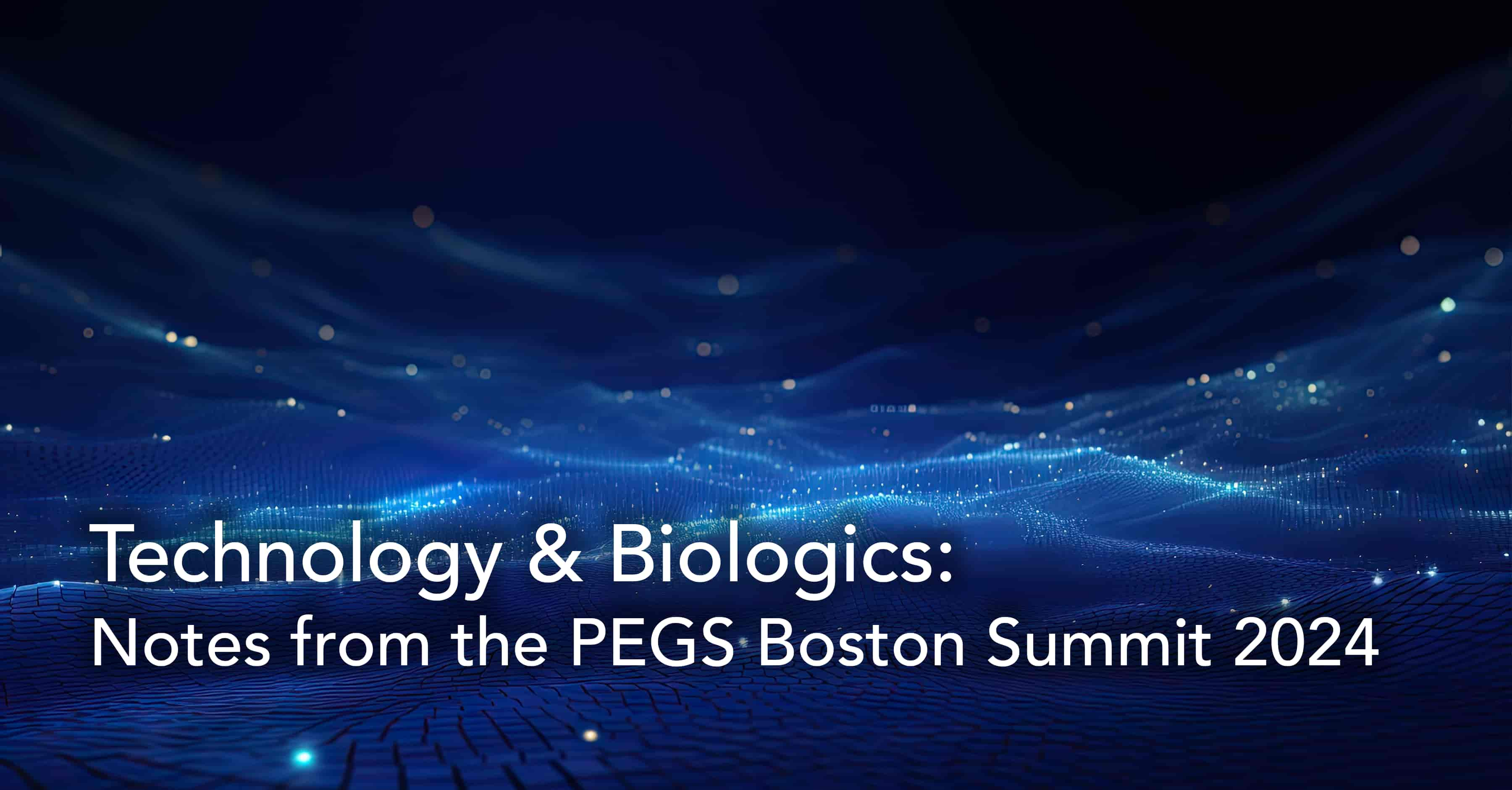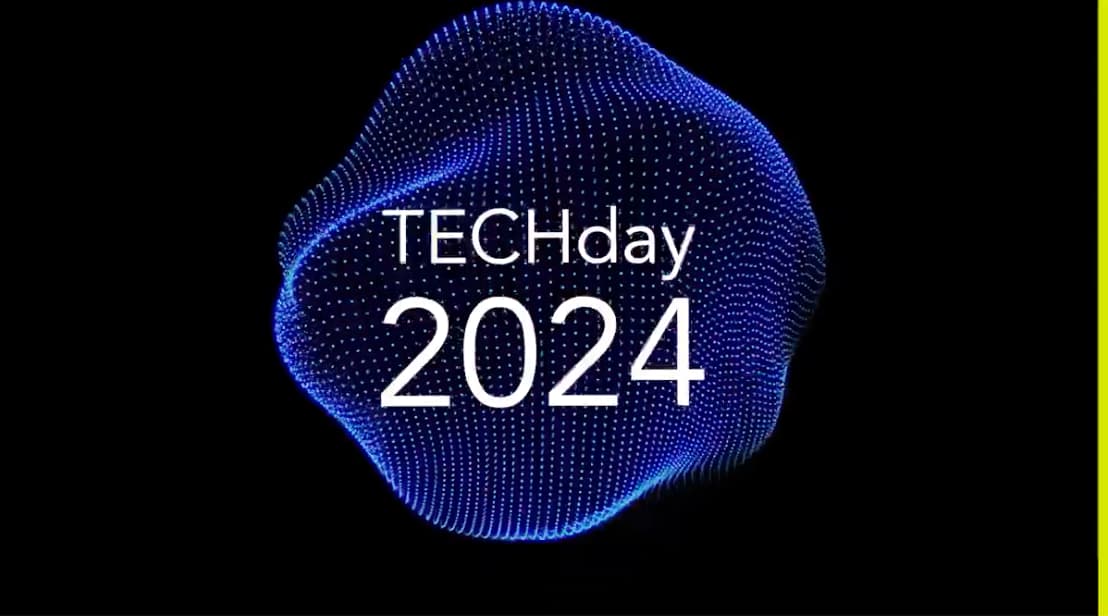Technology & Biologics: Notes from the PEGS Boston Summit 2024

With biologics emerging as ‘primary engines of value creation’ for bio/pharma companies, the focus has inevitably turned to innovative AI-powered generative and predictive capabilities for targeted, accelerated, and efficient biologics development.
The annual PEGS Boston Summit focuses squarely on the intersection between the rapidly growing therapeutic modality of biologics and the latest technological innovations that are advancing its development. Naturally, we were at the 2024 event to represent BioStrand/IPA’s approaches to innovating biologics development (LENSᵃⁱ: Empowering Diversity-Driven Discovery, Intelligent Lead Selection and Optimization) and to network and exchange ideas with our peers in the industry.
Here is my big-picture commentary, starting with a few general observations followed by the broad trends and takeaways from the PEGS Boston Summit 2024.
First, the event perfectly showcased the key role of technological creativity in continuously advancing antibody design and development and positioning biologics as the next big growth-driver vis-a-vis conventional small molecules. This creativity is slowly but surely expanding to more therapeutic formats including antibody-drug conjugates (ADCs), bispecific antibodies (BsAbs), and cell-based therapies like chimeric antigen receptor T-cell (CAR-T).
Second, the approach to integrating AI/ML technologies seems to be centered on tempering expectations based on more realistic tasks, like advanced sequence liability analysis. There is a large emphasis on lab automation and automated screening procedures with the focus on eventually evolving these building blocks into an integrated in-silico pipeline.
And finally, the continuous expansion of AI/ML applications across the entire design and development process is being driven by a strategic understanding of the value of creating unified data + information architecture that enables scalable AI.
 Ben Glogoza, Client Relations @IPA, Shuji Sato, Senior Director Client Relations @IPA, and Arnout Van Hyfte, Head of LENSai Product & Platform
Ben Glogoza, Client Relations @IPA, Shuji Sato, Senior Director Client Relations @IPA, and Arnout Van Hyfte, Head of LENSai Product & Platform
Here, then, are some key trends/takeaways from the event.
AI in Antibody Development:
There is heightened interest in using AI for predictive modeling, sequence analysis, and discovery processes. The capabilities of AI-driven methodologies in antibody structural modeling, predicting antibody-antigen interactions, predicting and optimizing antibody developability characteristics, predicting antibody-antigen interactions, etc., are rapidly being integrated into drug development workflows. Concurrently, there is an emphasis on the importance of paired data for enhancing model accuracy.
Next-generation Discovery Platforms:
Advanced AI tools and technologies are often being combined with traditional experimental methods to create complementary and comprehensive solutions that enhance the success rate of experimental approaches while mitigating significant challenges such as time, cost, and labor intensity.
At the same time, a new generation of AI-first antibody discovery platforms is setting new standards for rapid, cost-effective, and efficient antibody discovery. A proof-of-principle work demonstrated how generative AI can help design antibodies from scratch. Today, a global group of well-funded AI-driven antibody discovery startups is focused on innovations across different stages and dimensions of the biologics pipeline, including multispecific antibodies, de novo antibody discovery, full-stack antibody discovery and engineering by integrating a synthetic biology-based high-speed wet lab with machine learning technologies, and integrated in silico - in vitro - in vivo biotherapeutic research.
Functionality and Engineering:
Detailed insight into molecular properties is unveiling key differences between receptor antagonistic and agonistic antibodies. Engineering techniques such as affinity modulation and hinge rigidification are key focus areas.
To sum up, the PEGS Boston Summit 2024 was the perfect event to catch up on the cutting edge in biotechnological innovations and biopharmaceutical research. Our own relentless focus on continuous innovation has generated significant interest from large healthcare, pharmaceutical, and technology companies. The recent commercial release of LENSai API enables biologics researchers with streamlined access to our unique AI-powered capabilities and the power to easily integrate multimodal data from EHRs, company research data, and life science databases.
We will, of course, continue to prioritize technological innovation and the rapid commercialization of high-demand, intelligent antibody discovery capabilities.
Subscribe to our Blog and get new articles right after publication into your inbox.
Subscribe to our blog:






